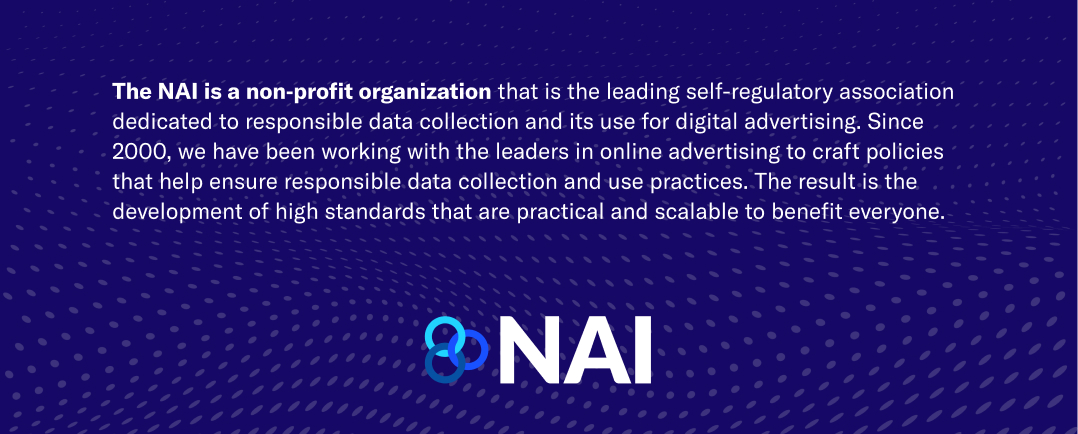NAI: Expansive FTC rulemaking should not be used to threaten business models and circumvent the legislative process
WASHINGTON, DC (August 11, 2022) – The Network Advertising Initiative today released the following statement by Vice President for Policy David LeDuc on the FTC’s announcement that it is initiating a rulemaking “cracking down on commercial surveillance and lax data security practices”:
“The FTC has voted along partisan lines to pursue an expansive rulemaking that could undermine the foundations of the digital economy if not pursued judiciously. Consumers will not be well-served by an overly broad, partisan rulemaking that limits their access to free digital content.
We take the Commission at their word that they aren’t prejudging the outcomes of this rulemaking, although we are concerned about their repeated use of the loaded term ‘surveillance’ to describe even established business practices that benefit consumers, small businesses, and a competitive marketplace.
Tailored advertising is a key driver of a robust and competitive digital media marketplace that supports consumers, publishers, and small businesses. For consumers, tailored advertising powers the market of free and low-cost content that consumers rely on for news, streaming, email, and more. Small businesses with limited marketing and advertising budgets rely on digital advertising to reach a much broader range of potential consumers than through other forms of advertising.
There have been extensive bipartisan discussions in Congress about comprehensive privacy legislation and those should not be short-circuited by a regulatory end-run by the FTC. The NAI strongly believes that we need strong, comprehensive consumer privacy legislation that provides a consistent framework for protecting consumers across all 50 states. Congress is in a strong position to achieve that goal, and we encourage them to continue working in a bipartisan manner to improve and enact a federal privacy law.
The NAI will engage with the FTC’s process to build a public record and explore the opportunities to use Section 18 authority to clarify and apply the agency’s existing consumer protection authority granted under Section 5 of the FTC Act, particularly with respect to identifying systemic harms stemming from unfair and deceptive practices. These goals are at the core of the FTC’s strong enforcement efforts over decades. Tailored advertising, with the right limitations on certain uses of data, does not represent a systemic harm and should not be banned or substantially curtailed.
However, it is imperative that the FTC act judiciously and adhere to the authority it has been granted by Congress under Section 5 of the FTC Act, and preserve opportunities for essential, innovative data uses, particularly to enable data-driven advertising and marketing to power robust digital content that benefits consumers and society as a whole.”
MEDIA CONTACT:
Kate Cox-Nowak
media@networkadvertising.org
571-453-6218








